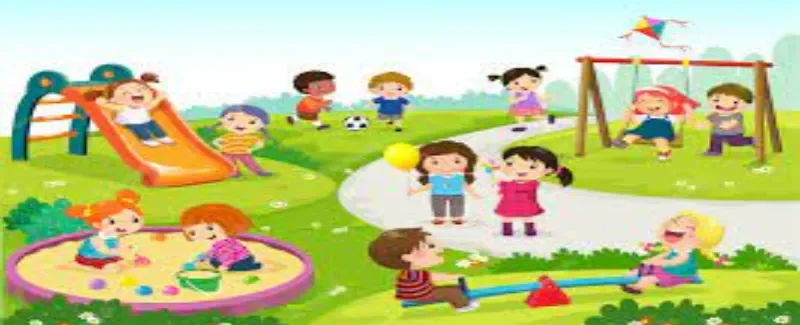How Do You Educate A Toddler?

Posted Date: May 9th, 2023
Toddler education refers to the process of providing young children between the ages of 1 and 3 with learning opportunities that promote their growth and development. The focus of toddler education is on building a foundation of basic skills that will help children succeed in later stages of education and in life. Toddler education typically involves a combination of structured and unstructured activities that support physical, cognitive, social and emotional development.
Examples of structured activities in toddler education include story time, singing and age appropriate games that promote language and cognitive development. Unstructured activities such as free play and exploration also play an important role in toddler education as they help children develop their creativity, imagination and problem solving skills.
Parents and caregivers can support toddler education by providing a stimulating environment that includes age-appropriate toys, books and activities. They can also engage in interactive play with their toddlers and encourage exploration and experimentation. In addition, parents and caregivers can enroll their toddlers in early childhood education programs or playgroups to provide additional opportunities for socialization and learning.
Steps For Educate A Toddler
1. Engage in Interactive Play: Play is an essential part of toddler education as it helps children develop their cognitive, social and emotional skills. Engage in interactive play with your toddler such as peek a boo, singing or playing with blocks. This type of play helps toddlers develop their language, problem solving and motor skills.
2. Encourage Exploration: Toddlers are curious by nature and enjoy exploring their environment. Encourage your toddler to explore by providing a safe and stimulating environment with age appropriate toys and materials. Allow your toddler to explore on their own but supervise to ensure their safety.
3. Read Books: Reading is an important activity for promoting language development and cognitive skills. Read age appropriate books with your toddler and engage in conversations about the story and pictures. Ask questions, point out colors and shapes and encourage your toddler to participate.
4. Sing Songs: Singing songs is a fun way to help your toddler develop their language and memory skills. Sing nursery rhymes or songs with simple lyrics and encourage your toddler to sing along.
5. Teach Basic Skills: Toddlers are at an age where they are starting to develop basic skills such as counting, identifying colors and shapes. Teach these skills through play and everyday activities such as counting the stairs as you climb them or pointing out colors in the environment.
6. Model Positive Behaviors: Toddlers learn by watching and imitating adults. Model positive behaviors such as sharing, kindness and respect for others.
7. Encourage Creativity: Encourage your toddler to engage in creative activities such as drawing, coloring and painting. This type of activity promotes self expression and imagination.
8. Provide Sensory Play: Toddlers learn through their senses and providing opportunities for sensory play can help with their cognitive and motor development. Activities such as playing with playdough, water play, or sand play can provide tactile, visual and auditory stimulation.
9. Foster Socialization: Toddlers are starting to develop their social skills and benefit from interactions with peers. Encourage your toddler to interact with other children through playdates or playgroups. This type of socialization helps with their social and emotional development.
10. Create A Routine: Toddlers thrive on routine and structure. Establish a daily routine that includes time for play, learning and rest. Consistency in routine helps with their cognitive development and provides a sense of security.
11. Limit Screen Time: Although technology can be a useful tool for education, it’s important to limit screen time for toddlers. Too much screen time can negatively affect a toddler’s social, cognitive and emotional development.
12. Provide Positive Reinforcement: Positive reinforcement is a powerful tool for encouraging desired behavior in toddlers. Praise your toddler for their efforts and accomplishments and provide rewards such as hugs, high fives, or small treats.
13. Be Patient: Toddlers can be challenging at times and it’s important to be patient and understanding. Avoid getting frustrated or angry when your toddler doesn’t understand or follow directions. Instead, offer encouragement and support.
14. Encourage Independence: Toddlers are at an age where they are starting to assert their independence. Encourage your toddler to do things for themselves such as dressing themselves or picking out their own clothes. This type of activity promotes their self confidence and independence.
Overall, educating a toddler involves providing a safe, stimulating and supportive environment that encourages learning and development. By engaging in play, reading and other age appropriate activities, you can help your toddler develop the skills and abilities they need to thrive in later stages of education and in life.
What Challenges Do You Face In Educate A Toddler?
Some Common Challenges You May Face When Educating A Toddler Include:
1. Short Attention Span: Toddlers have a short attention span and may become easily distracted or bored. To keep their attention, it’s important to keep activities short and engaging.
2. Limited Communication Skills: Toddlers are still developing their language and communication skills, which can make it difficult for them to understand instructions or express their needs and wants.
3. Lack Of Self Control: Toddlers are still learning self control and may engage in challenging behaviors such as tantrums or hitting. It’s important to use positive discipline techniques and avoid physical punishment or shaming.
4.Varying Interests And Abilities: Toddlers develop at their own pace and may have varying interests and abilities. It’s important to provide a variety of activities and opportunities for learning that cater to your toddler’s interests and abilities.
5. Safety Concerns: Toddlers are curious and may engage in unsafe behavior such as climbing on furniture or touching hot objects.
By being aware of these potential challenges and adapting your approach to meet your toddler’s needs, you can help overcome these obstacles and provide a supportive and engaging learning environment for your child.
Conclusion
In conclusion, educating a toddler is an important and rewarding process that involves providing a safe, stimulating and supportive environment for learning and development. Through play, reading and other age appropriate activities, toddlers can develop skills in areas such as language, cognitive, social emotional and physical development. It’s important to be patient, flexible and understanding, as toddlers may face challenges in their learning process such as short attention spans, limited communication skills and lack of self control. By using positive discipline techniques, maintaining a safe environment and seeking professional help when needed, parents and caregivers can support their toddler’s growth and development and help set them up for success in later stages of education and in life.







